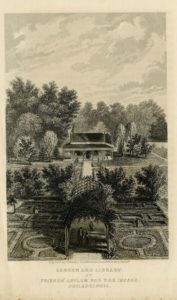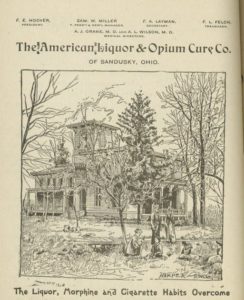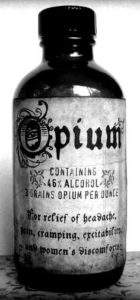
Friends’ Asylum for the Insane
Though it is impossible to fully understand a patient’s real state of mental health from a hundred years’ distance, old doctors’ notes and similar memorandums offer tantalizing clues to researchers today. The case of Caroline Stille is such a case.
A long note concerning the history of her insanity includes the fact that Mrs. S. “has been insane, at short intervals, ever since the age of puberty, at which time she was in the Friends’ Asylum near Philadelphia.” (This note was written in 1878, and put the patient’s age at 50, so the patient was probably born in 1828.) Mrs. S. transferred to another hospital and then into Massachusetts General Hospital in 1841, which put her at about 13 years old.
Oddly, the sentence immediately after the statement that she was in Massachusetts General in 1841 continues: “After her marriage in the same year she exhibited evidence of mental obliquity and moral perversions which rendered her domestic relations extremely unhappy.” Did this mean she married at 13, or merely that her mental symptoms occurred the same year she married?

Addiction Was a Huge Problem in America During the 1800s
And the note then continues, “At this time it was (?) that she was and had long been in the habit of using large quantities of opium and perhaps of alcohol.” Could this woman have become addicted to opium while a patient at one of the various hospitals she stayed in during her puberty? Did she take it routinely for some reason as a young married woman? Whether her marriage was actually in 1841, or later, she never left an asylum after 1857 when she would have been 29.

Opium Was Used Routinely for Women’s Complaints
Did doctors not recognize the symptoms of opium addiction? Or, did they believe Mrs. S.’s symptoms stemmed from some other cause? Whatever happened, by the time this unfortunate woman was 50 years old in 1878, the writer of her mental history could only say: “I earnestly desire that, for the sake of her children, the grievous scandal of their mother’s conduct may be prevented by her permanent restraint in an Institution for the Insane.”
The writer merely signed with the initials “A. S.” and was probably her husband.